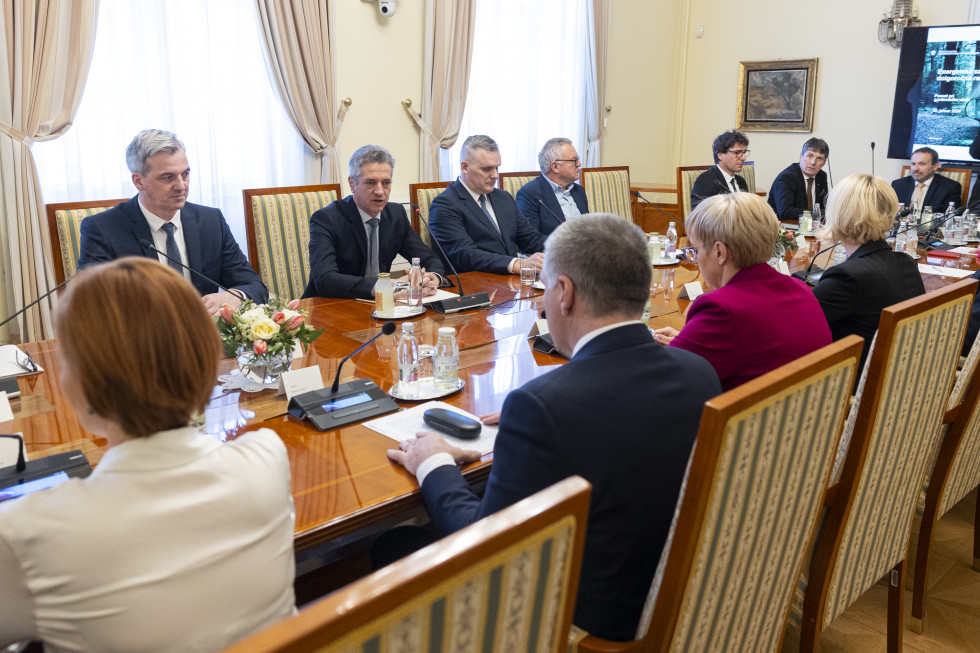Important consensus reached on the role of nuclear energy in energy policy and the activities for Nuclear Power Plant 2
Prime Minister Robert Golob today met with the President of the Republic, Nataša Pirc Musar, the President of the National Assembly, Urška Klakočar Zupančič, the President of the National Council, Marko Lotrič, the presidents of parliamentary parties and the deputies of the Hungarian and Italian National Communities.
After the meeting, the Prime Minister expressed his satisfaction that today a consensus had been reached on Slovenia's long-term energy policy and, in particular, on the role of nuclear energy in the energy policy: "We all agreed that the path to a carbon-free future is based on two sources, namely electricity from renewables and nuclear energy."
"We also agreed to continue with the activities for the construction of the second unit of the Krško Nuclear Power Plant," the Prime Minister said, adding that this is an extremely important project for Slovenia’s future, and hence it is important to achieve a political consensus instead of competing with each other.
The political parties will work together to prepare the appropriate legal bases, including legislative acts, in order to accelerate the project for the construction of the second unit of the Krško Nuclear Power Plant. "I am thinking in particular of legislation governing spatial planning that is currently in certain aspects the main reason similar projects have been delayed," the Prime Minister commented.
He went on to stress that all political parties support a referendum that would be held this year: "For the time being, we are thinking of a referendum in the second half of the year, but no date has been set yet. We will continue to discuss this issue," the Prime Minister said, adding that the referendum would show whether we want nuclear energy to remain part of Slovenia's future and whether people support the construction of the second unit.
"One of the reasons it makes sense to hold a referendum this year is to speed up certain procedures, especially siting of the facility," the Prime Minister explained. The approval in the form of the outcome of a consultative referendum in favour of the second unit also gives the investor a green light to proceed with all preparatory activities before the final investment decision that is foreseen for 2027 or 2028. The investor will have to invest more than 100 million in preparatory activities.
At today's meeting, it was also agreed that the political parties would phrase the referendum question together. "I think there is a genuine willingness from all five parliamentary parties to word the question in a way we can all agree upon," the Prime Minister said.
A broad public debate on the Resolution on the long-term peaceful use of nuclear energy in Slovenia ended last December. The Resolution will be shortly approved by the Government and, once adopted by the National Assembly, will serve as a foundation for the wording of the referendum question. "On this basis, a consultative referendum will be called. I am confident that all five parliamentary parties will support this initiative and promote a positive position on nuclear energy in the campaign," Prime Minister Golob concluded.

